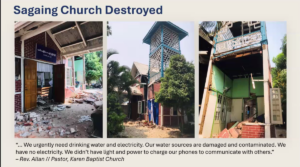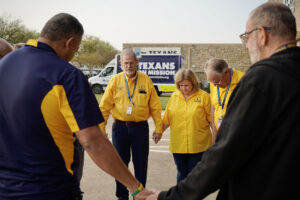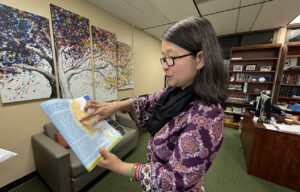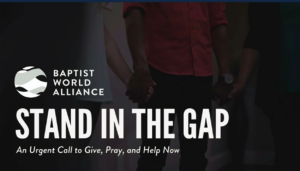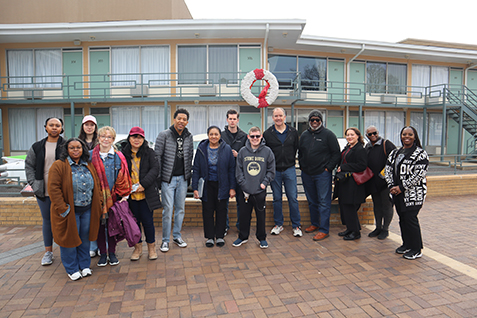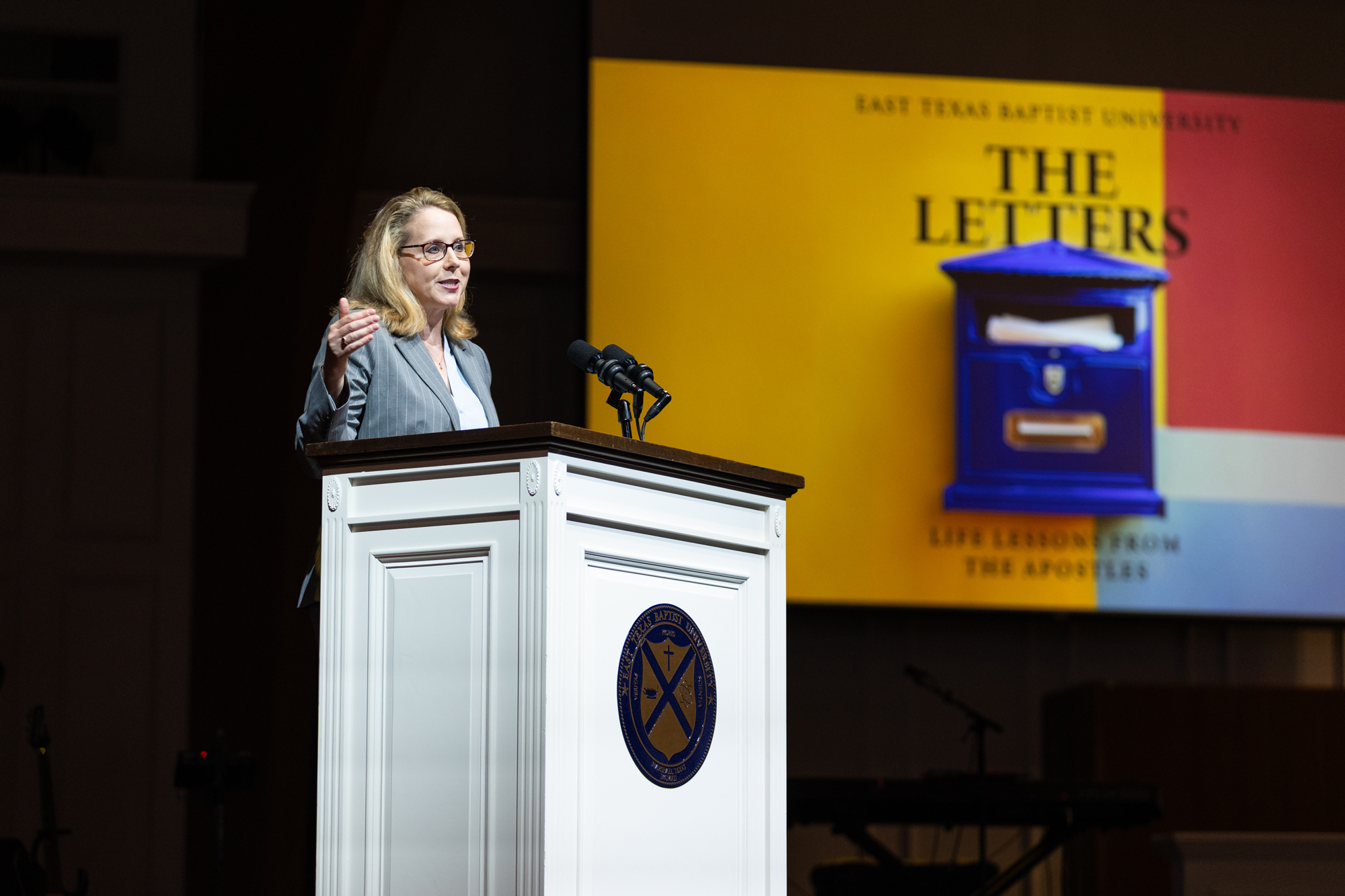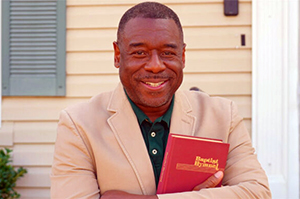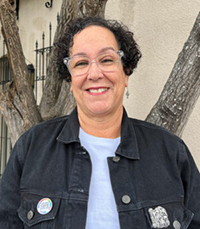Disaster relief meets needs in tornado-stricken Missouri
POPLAR BLUFF, Mo.—Carla Robinette recalled the March 14 tornado that hit Poplar Bluff, including her home. She said she experienced the event “with a lot of fear.”
“I was laying in my bed, then I heard crashing and thundering, and I just asked the Lord to help me,” she said. “He did, and I thank him every day.”
After the storm, she discovered trees down on the back of her house.
“My back porch is just demolished, fence damaged, just a lot of debris, limbs down,” she said.
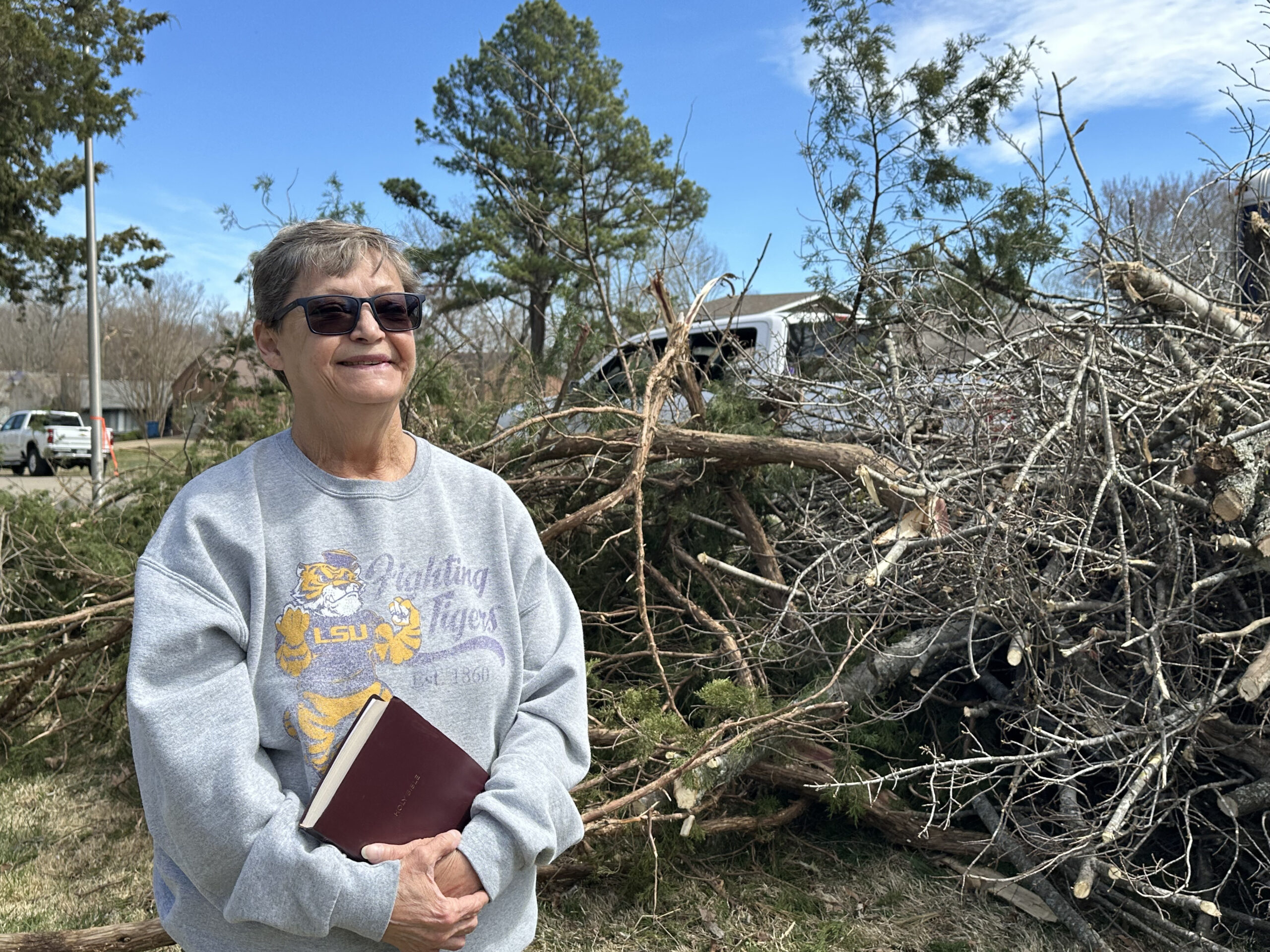
Her experience was mirrored by thousands in the area after the EF3 tornado hit the Southeast Missouri town. Several tornadoes carved a trail of destruction in 27 Missouri counties, leaving 12 dead across the state, including one in Poplar Bluff.
Robinette told her story as members of the Texans on Mission Harmony-Pittsburg disaster response team cleared downed limbs and removed debris from her house and yard.
Watching the team’s efforts, she responded: “You don’t know what it means (to me). It means a whole lot. It means gratitude. It means appreciation.
“And I just thank the Lord that y’all are Texans on Mission, and that y’all are able to help do this sort of work.”
She described team members as “very nice, very polite, very friendly and very gung-ho to do their work. They love the Lord, and I appreciate that.”
Harmony-Pittsburg Unit Leader Bruce Slaven described the damage in Robinette’s neighborhood: “If you walk around this block, you’ll see a number of homes that have been damaged from the tornado, and you’ll see Texans on Mission groups from all over helping these people here in Poplar Bluff.
“Today, we’re going to be taking some limbs off this house. We’re going to be cutting them up and moving them out the front so the city can pick them up. And hopefully before the end of the day, these people will look like they just didn’t have any damage at all.
“But our first duty in this job is to tell others about Christ,” Slaven said. “These people, a lot of them, they’re sitting there—they’re hopeless. They need help, and that’s why we’re here: To help them and then to give them the hope that they can carry on with their lives.”

Steve Gilbert, who served as a chaplain with the Texans on Mission Collin County response team, agreed.
“My role as a chaplain is not as much to take care of our chainsaw team members, which I also do, and looking out for their safety, but my heart is really dedicated to helping and ministering to the homeowners—those that were affected in many ways by the tragedies that have happened.”
“With one homeowner,” Gilbert said, “I am sensing that there actually is a spiritual need there, so I always try to get inside their heart a little bit during the time I can minister (to them).
“We always present a Bible that everybody (on the team) has signed, and I usually leave a Scripture with them, and we give that as a personal presentation, just helping them understand that we do not do this for any compensation other than ministering to them and their needs,” Gilbert said.
“And we know we are at any given place on any given day because that is where God wanted us to be. That speaks to everybody’s heart, whether they are a believer or not.”
‘Phenomenal damage’
The recovery effort spans the length of the city, according to a map of the tornado’s path. Wendell Romans, Texans on Mission’s state chainsaw coordinator, called the scale of the damage and response “a huge deployment for Texans on Mission.”
“The devastation that we’re finding is so widespread that we’re going to need probably every chainsaw team we have, and we’re talking about bringing in some outside teams also. But the damage is just phenomenal.”
Romans said leadership and assessment teams were deployed to Poplar Bluff within hours of the storm. “We were contacted by Missouri (Baptist Convention) Disaster Relief to come help them with the chainsaw relief. We responded just as soon as we could and were here within probably eight hours after they contacted us.

“It was a pretty quick response because we know what it’s like to go through something like this,” he added.
“We brought everything we possibly could to this. It’s like a little city when we move in. We have our own chainsaw teams, of course, plus we have our own shower and laundry.
We have our own cooking team. We have our own electrical team. We’re pretty self-sufficient, and we have to be that way in order to do what we do. Because when a disaster hits, you never know what you’re going to get into.”
The team, which numbered more than 60 Texans on Mission by the second week, set up its response operations at Temple Baptist Church. Church member Steve Davis, who also has served as a city councilman and mayor of Poplar Bluff, shared his appreciation for the team’s response … as well as for the removal of five of his own giant trees lost in the storm.
“We weren’t injured or anything, and our house was not damaged that much either,” he said. “And praise the Lord, you guys got up here quickly to help this area, and that’s a blessing. You’re doing a wonderful job. We’re glad to have you here and we thank you, Texans on Mission.”
Editor’s Note: This story was written in the second of an estimated four weeks of response by Texans on Mission. By April 3, Texans on Mission volunteers had provided more than 814 volunteer days of work, conducted 85 chainsaw jobs and fed volunteers 1,815 meals.
